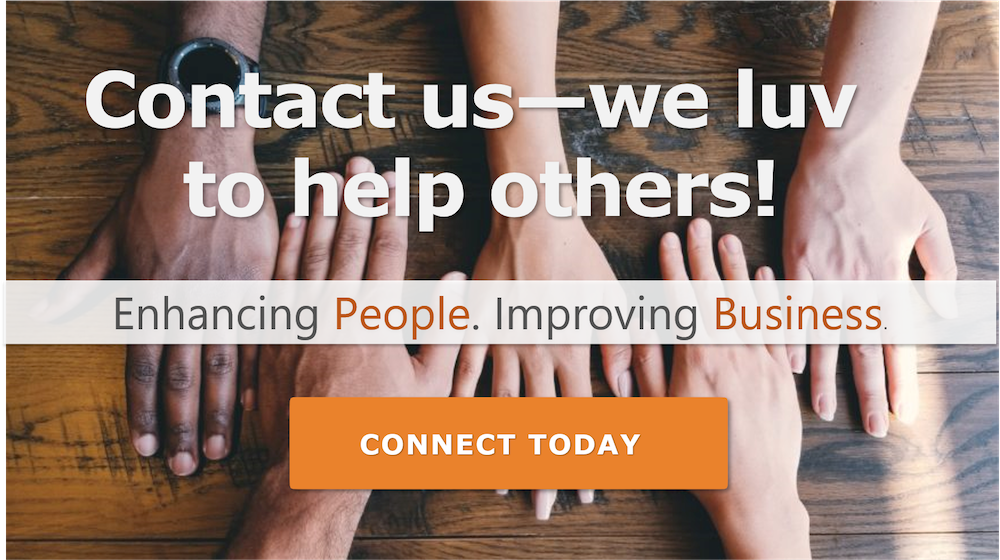Why You Should Care About Empathizing
with Others
The simple definition of empathy is the ability to understand what other people feel emotionally. It is putting yourself in someone else's place and feeling what they are feeling.
It's an essential part of human nature, and it serves us well in both our personal and professional lives. It builds relationships, and it makes better leaders.
"Nobody cares how much you know,
until they know how much you care."
An Empathy Scenario
Pretend you're standing in line at the checkout counter and witness the man in front of you tell the girl at the register to hurry up. She tries to go faster but gets flustered and drops the pickle jar. It shatters to the floor, and the man curses and asks the girl how she ever got hired in the first place. She begins to cry. You feel helpless and sad. Your pulse quickens. You look at the girl behind the counter and want to cry yourself. You are feeling empathy.
Some people would look at the same situation and perhaps be angry at the man because he is in the wrong, and they would feel bad for the girl, but they wouldn't necessarily understand what she was feeling.
Most people can empathize, at least on the most basic level. Unless you are a true narcissist or a psychopath, you can respond to another's pain with empathy.
Signs You Have Empathy
Some qualities in your personality show you are likely to be an empathic person include:
-
People tell you their problems
-
You are a good listener
-
You think about how others feel
-
Other people come to you for advice
-
You reach out to help others who are suffering
-
You feel overwhelmed by tragic events
-
You can tell whether or not someone is honest
-
Social situations often drain your energy
-
You have difficulty setting boundaries in your relationships
Being concerned about and caring for the well-being and happiness of other people is an admirable trait. However, it can also leave you feeling burned out and overwhelmed.
When empathy takes its toll on your psyche, remember to practice self-care. It is critical to your well-being and your ability to continue caring for other people's feelings.
Types of Empathy
Empathy comes in a few varieties.
-
Affective Empathy – This is the ability to share another person's emotions. When you see someone sad, you feel sad.
-
Cognitive Empathy – This is the ability to understand how someone else feels and then work out what they may be thinking.
-
Compassionate Empathy – This is the ability to physically react to what someone else is feeling. For example, when you see someone is afraid, your heart pounds or if they are embarrassed, you begin to blush or break out in a cold sweat.
You may use any or all of these empathy types whenever you witness someone in distress. You may also feel empathy to varying degrees. You may have a great deal of compassion for some, but you can barely muster a caring attitude for others.
Your past experiences and how you perceive the other person are directly related to the amount of empathy you can feel. Other factors that limit a person's ability to feel empathy include:
-
Biases – Blaming other people's failures on their internal characteristics but blaming your failures on external factors.
-
Dehumanization – Belief that people who are different from you don't feel the same way you feel.
-
Victim Blaming – When a person suffers a tragic event, and you believe it's their fault or that they deserved it.
Benefits of Practicing Empathy
Chronic negative emotions are deadly. They impact every part of your mind and body and permeate your system leaving behind sickness and pain.
On the other hand, positive emotions lead to happiness, contentment and connection to other people. Humans cannot be happy without those connections.
Empathy, then, is a path to human connection. Human connections make us feel happy, and we know happiness turns on your immune system and acts as a healing agent. Being happy and connected improves your health. It provides contentment.
But the ability to empathize meets more than an emotional need. The qualities found in an empathic person also demonstrate the overall ability to think critically, adapt quickly, listen proactively, and respond appropriately. These are the key ingredients to making a great leader and, overall, the best you, you can be. Here are more reasons you should practice empathic skills.
-
You will understand how you affect other people and can adjust accordingly
-
You will learn your intuition helps you understand and respond to non-verbal cues which minimizes misunderstandings
-
You will adeptly handle interpersonal conflict when it arises
-
You will be able to accurately predict other people's behaviors and reactions in a given situation
-
You will be a motivator and a source of inspiration to others by understanding and treating them the way they wish to be treated
-
You will look for the bigger picture
Can You Learn Empathy, or are You Born with It?
Research has shown that some people are born with the ability to be more empathic than others. Most everyone expands on and practices this empathic ability as children growing up, but not everyone has the same exposure to situations in which they could learn and practice.
People that have a diminished ability to empathize with other people could benefit from learning to be more empathic. It would also greatly benefit the people around them like their spouse or partner, their employees or coworkers, or the old man on the bus who looks tired and has nowhere to sit, so you give up your seat.
Research shows that empathy can be taught with "strategic educational interventions." Training individuals to become better communicators significantly increases empathy scores. Asking people to keep a reflective journal of their thoughts and experiences also increases empathy.
Other empathy training includes:
1. Instruction on the benefit of showing empathy.
2. Using role models to demonstrate showing empathy in response to what someone has said or done.
3. Practice showing empathy. It is often done with a trainer who is responding to comments or actions of another person.
4. Offer constructive feedback on a person's attempts to show empathy, including suggestions on how to better assess another person's emotions.
Train Yourself to Empathize
It is never too late to try to hone your empathy skills. Granted, it comes easier to some than others. However, with a bit of practice, it can become second nature to you too.
-
Look for new experiences – Shifting your perspective to see a situation through another person's eyes allows you to broaden your views.
-
Read literary fiction – Research shows that when people read fiction, they feel like they enter a new world. This is important because it shows people can identify with other people and groups outside themselves.
-
Listen – Listen with the intent to understand, not the intent to debate. Do not interrupt. When you give your undivided attention to someone for the purpose of understanding their point of view, that is the beginning of empathy.
-
Ask questions – Doing so will allow you the opportunity to learn more about their feelings.
"For empathy to be most effective and maximize well-being, it is important to feel both the pain of another and also know that you are in a position to do something about it" (verywell mind 2020).
Empathy can not only help you understand others;
it gives you the motivation to make a difference.
Now more than ever, your employees need emotional support and resources. The pandemic has created a whole new set of physical, financial and emotional stressors that have woven their way into the home and workplace.
Hundreds of organizations support their employees through The Ulliance Life Advisor Employee Assistance Program (EAP). Investing in the right EAP to support your employees before, during and after they face adverse events will help them and help you. Visit ulliance.com, or call 866-648-8326.
References
Borody, B. (2020, July 7). Being empathic is important. Can You learn empathy? Retrieved from Casper: https://takecasper.com/2020/07/empathy-
2/#:~:text=Most%20individuals%20will%20learn%20empathy,empathy%20in%20your%20daily%20life.
Ph.D., D. C. (2020, February 14). How to Develop Empathy in Your Relationships. Retrieved from verywell mind: https://www.verywellmind.com/how-to-develop-empathy-in-relationships-1717547
Ratka, A. (2018). Empathy and the Development of Affective Skills. Pharmaceutical Education, 82(10):7192. Retrieved from https://www.ncbi.nlm.nih.gov/pmc/articles/PMC6325458/
unk. (n.d.). Empathy: What it is, Why it Matters, and How You Can Improve. Retrieved from Masters in Communications.org: https://www.mastersincommunications.org/empathy-what-why-how/#how-to-improve-your-level-of-empathy


